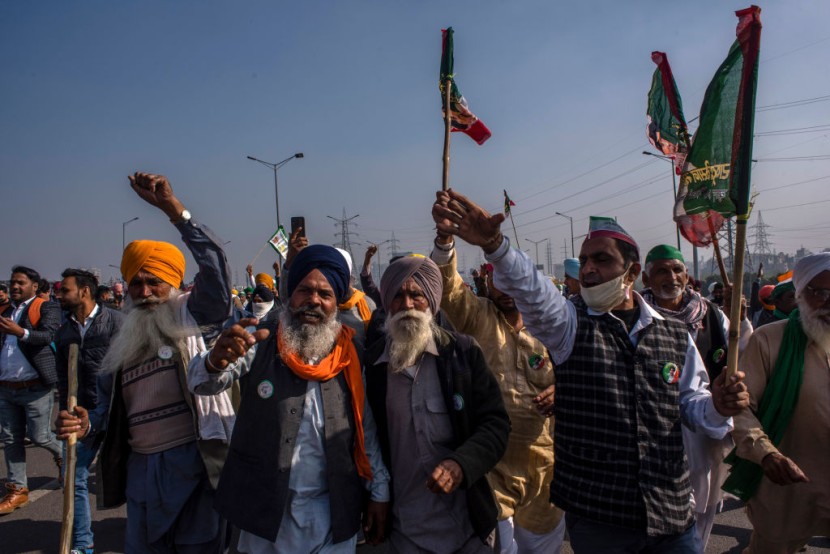
As thousands of Indian farmers protested against the agricultural reform bills of the government, violence erupted, as farmers rode tractors part of police barriers, and clashed with officers around the capital city of India, New Delhi on Tuesday.
Indian Farmers Protest
According to CNN, Indian farmer's protest did not start right away as their union had devised a plan for a peaceful march into the capital on Republic Day, a day wherein the people of India commemorates the signing of the Indian constitution.
The government of India had approved the plan for the farmers, who have been protesting already for months, allowing them to enter the city at noon.
However, the plans of the farmers went awry when some protesters started to march towards the capital a few hours before their schedule, which resulted in a face-off against the police.
The law enforcement has used tear gas and batons as they tried to break the Indian farmer's protest.
Moreover, as the farmers abandoned their approved routes, fierce battles broke out around the city.
A farmer was even crushed when his tractor was among the many vehicles that had overturned in the melee.
Based on reports, there are at least 19 individuals involved in the clashes were sent to two hospitals in New Delhi.
On the latest report of the Indian Police, at least 86 officers were also injured during the clash,
Eish Singal of the New Delhi police, shared during a statement that the protesters broke the agreement that was established before the rally.
He also added that the farmers began the tractor rally before the scheduled time, they also resorted to violence and vandalism.
Singal also mentioned that the farmers, who are mostly from the Punjab and Haryana states of India, also entered the historic Red Fort in New Delhi and raised the Nishan Sahib, which is a flag of importance to the Sikh communities of India, NPR reported.
On Tuesday, the Joint Farmers' Front, which represents a number of unions of Indian farmers, issued a statement wherein they condemned the clashes and separated themselves from the protesters who have exhibited violence.
In their statement, they have mentioned that they condemn and regret the unacceptable and undesirable events that have taken place that day and dissociate themselves from those who are indulging in those acts.
The Joint Farmers' Front also clarified that they had made efforts in keeping the events as peaceful as possible, however, some organizations and individuals have violated the designated route and indulged in condemnable acts.
Amarinder Singh, the Chief Minister and the one who represents Punjab, and also where mostly the farmers are from, tweeted that the violence was unacceptable.
The Chief Minister also urged all of the genuine farmers to vacate Delhi and go back to the 'borders,' which refer to the areas on the outskirts of the city, places where the farmers have been camped for weeks in protest, The Guardian reported.
On the other hand, the Indian farmer's protest started two months when they initially demanded the repeal of the three laws that Indian prime minister Narendra Modi's Bharatiya Janata Party passed in September, as a part of a plan in making India a $5 trillion economy by the year 2024.
Related Article : Apollo CEO Leon Black Plans to Step Down After Jeffrey Epstein Payments
© 2026 HNGN, All rights reserved. Do not reproduce without permission.








